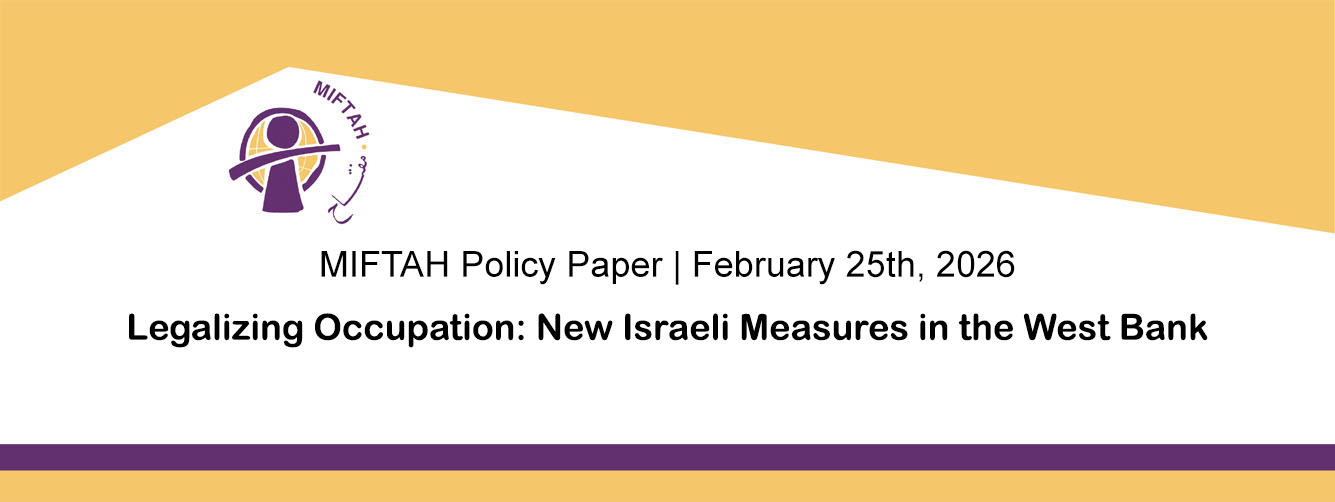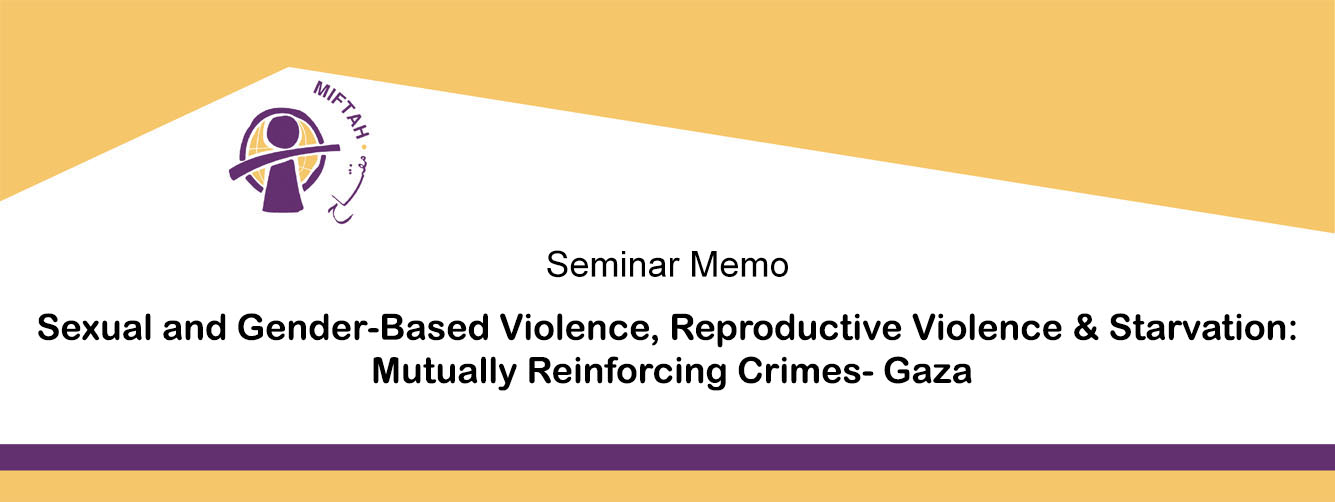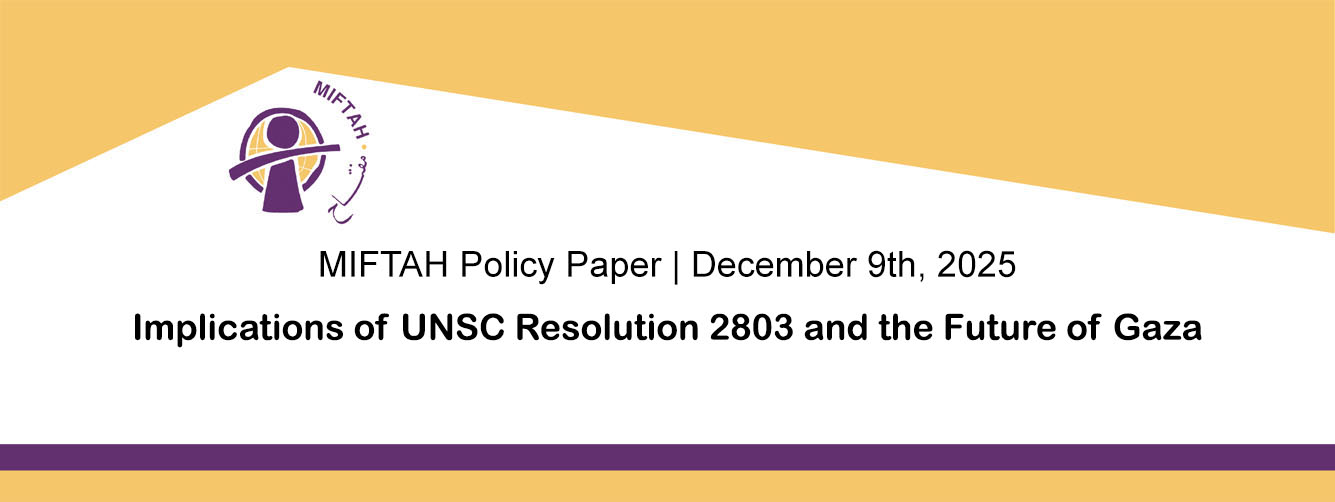Introduction
The Graduate Institute for Development Studies (IUED) in Geneva and the Geneva Centre for the Democratic Control of Armed Forces (DCAF) conducted in July 2005 a survey in order to measure public perceptions of Palestinian security sector governance.
The survey involved 1,500 individuals living in the West Bank, Gaza Strip and East Jerusalem. In this study, ‘security sector’ is the public sector that comprises all security forces and the relevant civilian bodies needed to oversee them, including the judiciary. ‘Security sector governance’, in a very general sense, refers to how this sector is run. It looks at people, institutions, processes and practices that affect the functioning of the security sector and its capability to deliver security in the broadest possible sense to the population.
A successful security sector would effectively provide security for the greatest number of people at affordable costs, in full transparency and in an accountable manner. How well this is done in practice, however, is a matter of perception.
Thus, understanding how the public views the security sector and its activities is important for good governance. That is why public perception studies of security sector governance are an important tool not only for assessing the quality of governance, but also for evaluating the direction of future reforms. By giving the public a voice in the discussion of their own future security, public perception studies are a step towards greater inclusiveness in the management and over-sight of security issues. They are also a mean for establishing public accountability of the security sector and involving civil society in its governance. This in itself is an important element of any security sector reform agenda, given that the security sector, more than any other public sector, has a tendency to resist public input and oversight.
While many governments in the Middle East would be reluctant to authorize similar studies, the Palestinian National Authority deserves credit for having made this research possible.
The present summary report presents some key findings of the survey. A fully detailed report will be published in winter 2005/2006.
To View the Full Report as PDF (596 KB)
Legalizing Occupation: New Israeli Measures in the West Bank
Date posted: February 25, 2026
By MIFTAH

Executive Summary
On February 15, the government of Israel approved a process to register land in the occupied West Bank as Israeli “state property.” The decision builds on a cabinet resolution introduced in May of 2025 that established the framework for renewed land settlement proceedings on Palestinian land.
Implemented for the first time since Israel’s occupation of the West Bank in 1967, this process enables Israeli authorities to declare land ‘state property’ when Palestinian ownership cannot be formally proven; a standard difficult for many Palestinians to meet. Even when landownership can be met, expropriative policies such as the Absentee Property Law allows Israel to confiscate Palestinian property and sell it to Israelis. A total of NIS 244.1 million has been allocated for this program, which has been stated to continue for decades. Israeli Government Resolution No. 3559 sets a first-phase objective of registering 15% of previously unregulated land within five years. [1]
This development follows the Israeli cabinet’s February 8th approval of a series of measures that expand Israeli control over land administration and acquisition in the West Bank, undermining the Palestinian Authority (PA) and amounting to de facto annexation. The details of the measures have not been released to the public, only communicated through a press release by government ministers.
To view the Full Policy Paper as PDF
Sexual and Gender-Based Violence, Reproductive Violence & Starvation: Mutually Reinforcing Crimes- Gaza
Date posted: December 20, 2025
By MIFTAH

Introduction
Palestinian women in Gaza are subjected to overlapping forms of violence by Israel that converge into a single, coherent structure of domination. Starvation, sexual and gender-based violence, and reproductive violence do not occur as isolated abuses, but as an interlocking system enacted simultaneously and reinforcing one another. These practices operate across psychological, social, and biological dimensions of harm. While Palestinian women’s bodies are the immediate site of this violence, its intended target is Palestinian society as a whole. By systematically targeting women, Israel undermines collective survival, erodes social cohesion, and attacks the continuity of Palestinian life itself. Taken together, these practices constitute a gendered architecture of genocide that must be recognized and addressed as such.
The Palestinian Initiative for the Promotion of Global Dialogue and Democracy (MIFTAH) has documented these three crimes throughout Israel’s genocide in Gaza. Firsthand testimonies collected from the Gaza Strip and the occupied West Bank reveal the distinctly gendered impacts of these violations and their cumulative effects on Palestinian women.
I. Sexual and Gender-Based Violence
Sexual and gender-based violence is systematically instrumentalized by Israel as a means of humiliating and isolating Palestinian women while dismantling family and community bonds. These violations should not be understood as isolated or aberrational incidents, but rather as part of a broader historical pattern in which sexual violence has been deployed as a tool of terror and social control against the Palestinian population.
Historical records document that during the 1948 ethnic cleansing of historic Palestine, Zionist paramilitary forces including the Haganah engaged in acts of sexual violence alongside mass killings and expulsions of Palestinians. The Haganah later became the institutional foundation of the contemporary Israeli military. This historical continuity underscores how sexual violence has long functioned as a weapon of war, embedded within military practices aimed at terrorizing civilians and facilitating population displacement.
Testimonies collected by MIFTAH fieldworkers across the West Bank and Gaza Strip reveal recurring patterns. Arrests conducted in family homes routinely transform domestic spaces into sites of domination. Soldiers storm houses, often in the middle of the night, restrain family members, destroy personal belongings, steal valuables, and dictate all movement within the home. Male relatives are frequently forced to witness or participate in the abuse of female family members, a tactic designed to emasculate men and dismantle the household from within.
Sexual violence also functions as a form of psychological torture in Israeli detention and interrogation settings. Alongside sleep deprivation, starvation, and physical assault, sexual violence is deliberately employed to induce psychological breakdown and assert total control. Testimonies describe forced strip searches, removal of hijabs, invasive bodily touching, slut-shaming, and explicit threats of rape against detainees or their relatives . Testimonies collected by the Palestinian Center for Human Rights (PCHR) describe in detail the systematic use of secual torture in Israeil detention settings. Sexual violence is further enacted through blackmail, including the use of nude or indecent photographs taken during interrogation to coerce compliance or enforce silence. These practices aim to strip women of dignity, break them psychologically prior to or during interrogation, and inflict lasting harm that weakens their sense of self long after release.
The full extent of sexual violence against Palestinian women today remains difficult to quantify, as survivors rarely disclose sexual assault or rape causing underreporting to be widespread. This silence reflects structural, legal, and social barriers rather than the absence of abuse. Palestinian survivors of violence perpetrated by Israeli soldiers or settlers seldom pursue legal avenues due to the well-documented lack of accountability within Israeli law enforcement mechanisms, where investigations rarely result in prosecution or redress .
Social stigma also plays a role in silencing survivors. In a predominantly conservative social context, sexual violence carries stigma that extends beyond the survivor to her family and community. Israeli forces exploit this reality deliberately, using sexual violence and threats to women’s “honor” as mechanisms of coercion, intimidation, and social fragmentation. In this way, sexual violence operates not only as an assault on individual women, but as a strategic instrument of collective harm.
II. Reproductive Violence
Reproductive violence targets women’s capacity to give life through the systematic destruction of healthcare systems, maternity services, and the material conditions necessary for survival. It refers to deliberate actions intended to impair an entire population’s ability to reproduce and sustain itself. In Gaza, reproductive violence is not incidental to armed conflict; it is enacted through policy-driven destruction that reflects intentionality rather than collateral harm.
This violence is carried out through the systematic targeting of life-sustaining infrastructure, including hospitals, maternity wards, neonatal units, fertility clinics, and embryo preservation centers, as well as the blockade of medicines, medical equipment, and hygiene supplies. The consequences are visible in rising maternal mortality, increased miscarriages linked to malnutrition and extreme stress, untreated reproductive infections, and the repeated displacement of pregnant women seeking care within a collapsing healthcare system .
These measures directly undermine women’s ability to safely conceive, carry pregnancies to term, give birth, and raise children. Women’s reproductive health is further compromised by the deliberate obstruction of humanitarian aid and the collapse of sanitation and water infrastructure. The destruction of healthcare facilities, combined with ongoing bombardment and repeated displacement, has rendered movement dangerous and unpredictable, making access to medical care nearly impossible and severely limiting the ability of humanitarian organizations to provide reproductive and maternal health services.
As a result, there has been a sharp increase in preventable reproductive health complications. Women report rising cases of fever linked to untreated vaginal infections caused by inadequate hygiene and the absence of feminine hygiene products, as well as unnecessary hysterectomies . Women using intrauterine devices experience prolonged bleeding and infections due to unsanitary living conditions, yet no options for safe removal currently exist in Gaza, posing serious long-term risks to reproductive health and bodily integrity . Women have also been forced to undergo emergency hysterectomies to control excessive post- partum bleeding that could not be managed due to the lack of healthcare.
Reproductive violence in Gaza is therefore both biological and symbolic. It constitutes an assault on the present population and on the possibility of future generations. The objective of preventing Palestinian continuity is further evidenced by the sustained and disproportionate killing of children, who have consistently been the most targeted demographic group throughout the genocide. This killing is reinforced by an ideological framework that dehumanizes Palestinian women and children. Public statements by Israeli political and military officials have repeatedly framed the killing of women and children as militarily justified . Within this logic, women are targeted not for their actions, but for their reproductive capacity and their role in sustaining Palestinian continuity. Such rhetoric has informed and legitimized military operations in Gaza. Throughout the genocide, civilian spaces including schools, homes, and hospitals, have been deliberately targeted as a matter of state policy. These are precisely the spaces where women and children sought refuge. The systematic killing and endangerment of women and children is not a secondary effect of warfare but a central component of the broader genocidal strategy.
III. Starvation as a Weapon of Genocide
Another grave factor to the reproductive health of women in Gaza has been starvation. Prolonged malnutrition, combined with physical exhaustion, repeated displacement, and lack of healthcare infrastructure, have contributed to increased miscarriages, loss of amniotic fluid, and heightened maternal mortality . Numerous women have reported using prenatal supplements distributed by humanitarian organizations as meal substitutes for themselves or their families, or exchanging them for food and essential supplies. Breastfeeding has become increasingly difficult due to suppressed milk production associated with undernourishment, while infant formula remains largely inaccessible, placing newborns at heightened risk. Chronic stress and nutritional deprivation have also resulted in amenorrhea, fertility complications, and potential long-term reproductive harm.
For women in Gaza, starvation functions not only as a form of biological deprivation but as a structural assault on familial roles, social reproduction, and dignity. It undermines women’s capacity to fulfill caregiving responsibilities, destabilizes family life, and produces severe physical, reproductive, and psychological consequences. Women disproportionately experience the embodied impacts of hunger while simultaneously carrying the emotional labor associated with sustaining children and dependent family members.
Testimonies collected by MIFTAH from displaced women subjected to Israel’s forced starvation consistently begin with descriptions of pre-displacement life, including homes, employment, family routines, and domestic spaces. The loss of the home, particularly the kitchen, emerges as a recurrent theme, reflecting the erosion of women’s agency and identity. The destruction of homes and domestic spaces traditionally associated with women’s autonomy has contributed to a marked erosion of dignity and self-perception. Reported symptoms include anxiety, insomnia, hair loss, emotional dysregulation, and post-traumatic stress, with many women suppressing their own distress to maintain caregiving roles.
Repeated displacement has further exacerbated women’s vulnerability. Multiple forced relocations have resulted in the loss of personal possessions, kinship networks, and community-based support systems. Overcrowded shelters lack adequate privacy, sanitation, and safety, compelling women to manage childcare and food preparation under unsafe and degrading conditions. Everyday survival practices are thus shaped by constant exposure to risk and instability.
For women who serve as the primary caretakers of their families, providing for loved ones often comes at great personal risk. They are frequently reducing or skipping their own meals so that their children can eat, often continuing caregiving responsibilities despite severe physical exhaustion . In displacement, they prepare rudimentary meals using limited ingredients and improvised methods, such as cooking lentils over burning toxic materials like plastic. These practices function both as survival strategies and as efforts to maintain a sense of continuity and stability for children amid profound disruption. In these contexts, women disproportionately bear the responsibility of caring for sick, injured, or disabled family members, despite acute shortages of medical care, clean water, and shelter. Overcrowding and unsanitary conditions contribute to widespread illness, while attempts to obtain food or humanitarian assistance expose women and children to ongoing risks of injury or death.
Starvation has additionally intensified gendered pressures within households. Men’s inability to secure food or protection has been associated with increased psychological distress, thereby expanding women’s emotional and caregiving responsibilities. For women whose spouses have been killed, detained, or disappeared, starvation enforces sole provider roles under conditions that systematically undermine the possibility of survival.
Conclusion
MIFTAH has documented violations of sexual violence, reproductive violence, and starvation at various points during the genocide in Gaza. These violations, however, do not occur in isolation; they operate simultaneously, reinforcing and amplifying one another as part of a single system of control. Sexual violence isolates women from themselves and alienates them within their communities. Reproductive violence deliberately targets women because of their childbearing roles. Starvation acts as both a biological and psychological assault. Taken together, these crimes compound one another, deepening harm and undermining the survival of Palestinian women and their communities. A single woman may experience all three forms of violence, being violated in detention, displaced and denied healthcare, and later starved while unable to feed her children. Together, these crimes transform daily life into a persistent site of punishment. They attack the Palestinian female spirit, disrupt women’s societal roles, and, in doing so, fracture society across generations, making recovery increasingly difficult.
The failure to confront these violations reflects a long colonial history, in which the rhetoric of “saving women” was used to justify empire while violence against women perpetrated by colonial powers was silenced or dismissed. To resist normalization and impunity, these crimes must be recognized and addressed as mutually reinforcing acts of genocide. Understanding these violations as an interconnected system of oppression is essential to grasp their full impact on Palestinian society. These gendered crimes are not about women alone; they aim to dismantle the foundations of Palestinian life. Women are targeted not only as individuals but as mothers, community anchors, and bearers of generational continuity, while Palestinian society is systematically weakened and broken at its core.
Sources and References
- Khatib, Muhammad Nimr al (1967). The Events of the Disaster or the Palestinian Disaster. Beirut: Al Khay at Publishers.
- MIFTAH – The Palestinian Initiative for the Promotion of Global Dialogue and Democracy, Sexual Violence as a Weapon of Genocide, 9 Oct. 2024
- Yesh Din. Data Sheet: Law Enforcement Against Israeli Soldiers Suspected of Harming Palestinians and Their Property: Figures for 2018–2022. Yesh Din
- MIFTAH – The Palestinian Initiative for the Promotion of Global Dialogue and Democracy, Israel’s Reproductive Genocide in the Gaza Strip. Women Peace and Security Special Study, Mar. 3, 2025
- ACAPS. Palestine: Impact of the War in Gaza on the Sexual and Reproductive Health and Rights of Women and Girls. ACAPS, 3 May 2024
- Law for Palestine, Database of Israeli Incitement to Genocide, Including After the ICJ Order (27 February 2024). Law for Palestine, 2024
- MIFTAH – The Palestinian Initiative for the Promotion of Global Dialogue and Democracy, Analytical Report on Field Testimonies: Starvation and the Violation of the Right to Food in the Gaza Strip, Oct. 14, 2025
- Palestinian Centre for Human Rights, PCHR Documents Testimonies of Systematic Rape and Sexual Torture in Israeli Detention against Released Palestinian Detainees, Nov. 10, 2025
Implications of UNSC Resolution 2803 and the Future of Gaza
Date posted: December 09, 2025
By MIFTAH

Executive Summary
On 17 November 2025, the United Nations Security Council adopted Resolution 2803, establishing a new governance framework for Gaza. The resolution endorses U.S. President Donald Trump’s Comprehensive Plan to End the Gaza Conflict (CPEGC) and the creation of a transitional international administration through a U.S.-led Board of Peace (BoP) and authorizes an International Stabilization Force (ISF). Rather than ensuring Palestinian sovereignty, this framework transfers control of Gaza’s civil administration, security, reconstruction, borders, and humanitarian aid to external actors, entrenching foreign oversight and further consolidating Israeli dominance over the occupied Palestinian territory.
This resolution raises grave legal and political concerns. It departs from foundational principles of international law and undermines the Palestinian people’s inalienable right to self-determination. By providing no mechanisms for accountability for Israel’s documented violations, offering no concrete safeguards for Palestinian rights, and presenting an undefined framework with no clear timeline or benchmarks, Resolution 2803 risks perpetuating systemic injustices, enabling a reconfigured form of occupation, and further entrenching the colonial-style control already in place.
To view the Full Policy Paper as PDF
14 Emil Touma Street,
Al Massayef, Ramallah
Postalcode P6058131
P.O.Box 69647
Jerusalem
972-2-298 9490/1
972-2-298 9492
info@miftah.org



